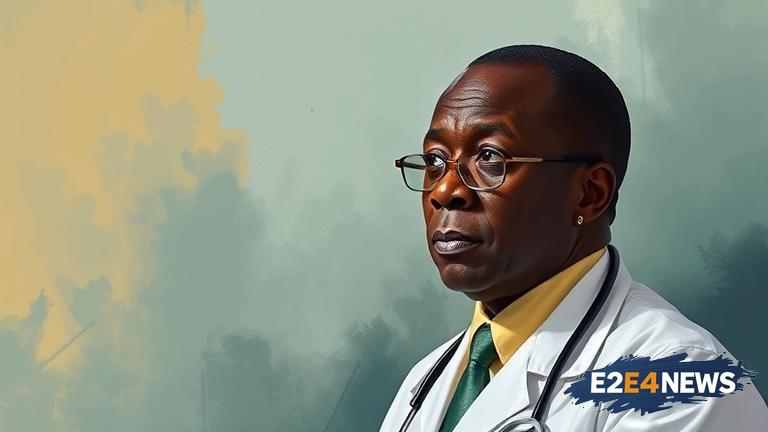The 75th Regional Committee Meeting (RC75) recently took place, bringing together health experts and officials from across Africa to discuss pressing health issues. Liberia’s Dr. Kpoto was in attendance, using the platform to call for enhanced health system resilience across the continent. Dr. Kpoto’s remarks highlighted the importance of robust health systems in mitigating the impact of diseases and promoting overall well-being. The meeting provided an opportunity for delegates to share experiences, best practices, and challenges in strengthening health systems. Dr. Kpoto’s appeal for stronger health systems resonated with attendees, who acknowledged the need for improved infrastructure, equipment, and personnel. The Liberian doctor’s statement also emphasized the role of international cooperation and collaboration in supporting African countries’ efforts to bolster their health systems. Furthermore, Dr. Kpoto stressed the importance of investing in healthcare workforce development, citing the need for skilled and dedicated professionals to drive health system strengthening. The RC75 meeting also featured discussions on the COVID-19 pandemic, with delegates sharing lessons learned and strategies for enhancing pandemic preparedness and response. In addition, the meeting touched on the topic of universal health coverage, with Dr. Kpoto and other delegates underscoring the need for equitable access to quality healthcare services. The meeting’s outcome document is expected to inform regional and national health policies, guiding efforts to strengthen health systems and improve health outcomes. Dr. Kpoto’s contribution to the meeting reflected Liberia’s commitment to health system strengthening and its dedication to promoting regional and global cooperation on health issues. The meeting’s focus on health system resilience is particularly relevant in the context of Africa, where countries face numerous health challenges, including infectious diseases, non-communicable diseases, and health security threats. By prioritizing health system strengthening, African countries can better respond to these challenges and promote the health and well-being of their populations. The RC75 meeting demonstrated the value of regional collaboration and dialogue in addressing common health challenges and promoting shared goals. Dr. Kpoto’s message on the need for stronger health systems is likely to resonate with health experts and policymakers across Africa, inspiring renewed efforts to invest in and strengthen health systems. As the region continues to navigate the complexities of global health, the importance of robust health systems will only continue to grow. In conclusion, Dr. Kpoto’s call for enhanced health system resilience at the RC75 meeting highlights the urgent need for African countries to prioritize health system strengthening and invest in the infrastructure, personnel, and technologies necessary to promote health and well-being. The meeting’s outcome is expected to have a lasting impact on regional health policies and initiatives, guiding efforts to build stronger, more resilient health systems across Africa. With the continent facing numerous health challenges, the need for collective action and cooperation has never been more pressing. By working together and prioritizing health system strengthening, African countries can create a brighter, healthier future for their populations. The meeting’s emphasis on health system resilience also underscores the importance of preparedness and response to health crises, including pandemics and outbreaks. As the global health landscape continues to evolve, African countries must remain vigilant and proactive in addressing emerging health challenges. Dr. Kpoto’s statement serves as a reminder of the critical role that health systems play in promoting health, driving economic growth, and reducing poverty. By investing in health system strengthening, African countries can unlock numerous benefits, from improved health outcomes to enhanced economic productivity. The RC75 meeting marked an important milestone in the region’s efforts to promote health system resilience, and Dr. Kpoto’s contribution will likely inspire further action and investment in this critical area.
